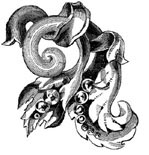
The Catch-22 of Ecumenical Relations With Evangelicals
OLD-FASHIONED EVANGELICALS, NEW-FANGLED EVANGELICALS
Churchman (no definite article) is an Anglican quarterly of aggressively Evangelical views, but it is a journal a Catholic can admire. The Churchman Evangelical will defend Scripture against the critics and Nicaean doctrine against the skeptics. He will reject abortion, the ordination of women, and the approval of homosexuality. He is willing to answer with a definitive and unqualified yes or no to questions to which the standard answer among Christians of all sorts is a tactful evasion. You might find him picketing an abortionist or using a generic “he.”
This kind of Evangelical seems to be a minority within the Evangelical movement, now dominated by people of more liberal, experiential, and even Catholic views. “Catholic” of a sort, I mean — they like liturgy more than Evangelicals used to, though they also like to make up their own, and love “spirituality,” including hitherto forbidden spiritual disciplines, though here again they like to make up their own.
In ecumenical settings, it is the Churchman Evangelical and not the new Evangelical to whom the orthodox Catholic is drawn. He sees in him a kindred mind and heart. And yet there is a sharp limit to ecumenical good feeling. You may admire the Churchman Evangelical’s religion, but you will occasionally discover that he dislikes yours.
You May Also Enjoy
"Scripture Alone" fails both Muslims and Protestants, as living by one text leads to problems of authority and fundamentalism.
In blurting out his opinion of the supposedly wonderful and God-gifted diversity of religions in a slapdash manner, Francis does great injustice to the Catholic religion.
The desire for Christian unity can assume such importance that insistence on points of doctrine comes to be regarded as inconvenient or divisive.

